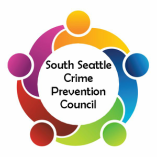FBI Scams
E-mail scams/frauds invoking the FBI (Federal Bureau of Investigations) abound, unfortunately; however, there are ways to protect yourself from falling victim to these crimes. One key fact to keep in mind: The FBI does not send mass e-mails to private citizens; the FBI does not send e-mails to private citizens which ask for money or personal and financial information.
Many of these scam e-mails appear legitimate and may include the name of the FBI Director, other FBI officials, or names of fictitious FBI agents, along with depictions of the FBI seal, photos, banners, and the like. Do not be fooled by appearances!When in doubt of an official-looking e-mail from the FBI, go to the FBI's website at fbi.gov; select the "Scams and Safety" tab, go to the "Common Fraud Schemes" page and learn the types of e-mail scams the FBI investigates and tips to avoid them. The FBI urges people to report potential e-mail scams, also known as e-scams, on the Internet Crime Complaint Center (IC3) website found at www.ic3.gov. The IC3 is a joint venture of the FBI and the National White Collar Crime Center (NW3C).
The FBI offers suggestions on how businesses can avoid being taken by many kinds of e-mail scams; the following tips are from Michael Cooney's web article "FBI Warns Businesses: 'Man-in-the-E-Mail' Scam Escalating" :
Many of these scam e-mails appear legitimate and may include the name of the FBI Director, other FBI officials, or names of fictitious FBI agents, along with depictions of the FBI seal, photos, banners, and the like. Do not be fooled by appearances!When in doubt of an official-looking e-mail from the FBI, go to the FBI's website at fbi.gov; select the "Scams and Safety" tab, go to the "Common Fraud Schemes" page and learn the types of e-mail scams the FBI investigates and tips to avoid them. The FBI urges people to report potential e-mail scams, also known as e-scams, on the Internet Crime Complaint Center (IC3) website found at www.ic3.gov. The IC3 is a joint venture of the FBI and the National White Collar Crime Center (NW3C).
The FBI offers suggestions on how businesses can avoid being taken by many kinds of e-mail scams; the following tips are from Michael Cooney's web article "FBI Warns Businesses: 'Man-in-the-E-Mail' Scam Escalating" :
- Establish alternative communication channels, such as telephone calls, to verify significant financial transactions. Arrange this second-factor authentication early in the business relationship and outside the e-mail environment to avoid interception by hackers/fraudsters.
- Utilize digital signatures in e-mail accounts. Be aware that this will not work with web-based e-mail accounts, and some countries ban or limit the use of encryption.
- Avoid free, web-based e-mail accounts for business transactions; instead, establish a company website domain and use it to establish company e-mail accounts instead of free, web-based accounts.
- Do not use the “Reply” option to respond to any business e-mails. Instead, use the “Forward” option and either type in the correct e-mail address or select it from the e-mail address book to ensure the real e-mail address is used.
- Delete spam: Immediately delete unsolicited e-mail (spam) from unknown parties. Do not open spam e-mail, click on links in the e-mail, or open attachments.
- Beware of sudden changes in business practices. For example, if suddenly asked to contact a representative at her/his personal e-mail address when all previous official correspondence has been on a company e-mail, verify ,using other channels, that you are still communicating with your legitimate business partner.
The Federal Trade Commission (FTC) also offers useful information about scams; visit their website at ftc.gov and pay particular attention to the article "Can You Spot A Government Imposter?" by the FTC's Amy Hebert. You may also forward unsolicited e-mail scam offers and e-mail spam to the FTC at spam@uce.gov.
